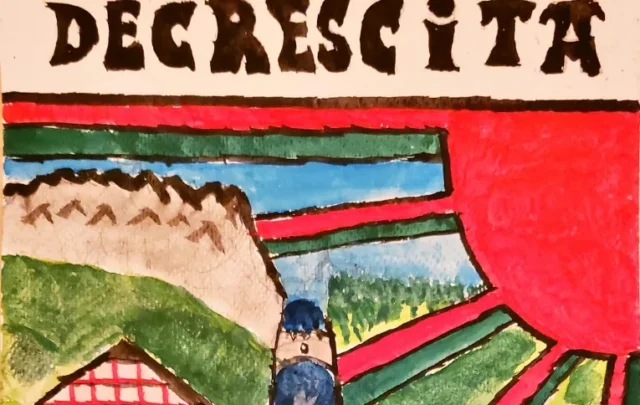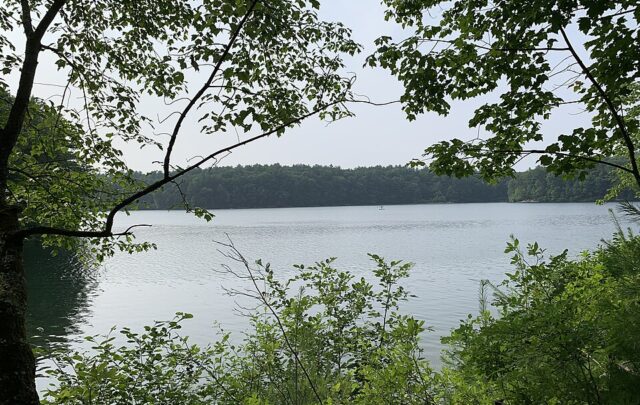We are currently facing a worldwide recession. Many people cannot find employment, and many things are poorly done or not done at all, because businesses and governments say they don’t have the money to fund them. Political and business leaders keep calling for more growth to get us out of this recession. I am not an economist nor do I have a complete understanding of the economy, nevertheless, like the boy who pointed out that the emperor was naked, I see things that strike me as odd.
Perpetually pursuing growth into the future, in a finite space with limited resources, is impossible. We have already exceeded the level of consumption our planet can sustain. According to the Global Footprint Network it would take 1.5 planets like our own to regenerate all the resources humanity now uses and assimilate our carbon dioxide emissions. If everyone lived like the average American, we would require the resources of almost 5 planets. Instead of growing, we need to scale back. Continued growth is suicide for our species. Now this may sound naïve, but why not employ people who have lost their livelihood to do things that urgently need to be done, and do this in a way that puts us back on the road to sustainability?
In trying to answer this question, more questions rise to the surface. How can we create enough jobs? Where do we get the money to pay for them? By focusing on efficiency, as we now do, and raising worker productivity, workers are continually producing more for each hour worked. Under this current economic system, people must consume more and more (at the same time placing more and more burden on the environment) just to maintain jobs. Outsourcing exacerbates employment problems, requiring even more consumption to make up for disappearing jobs. How will we ever return to earlier levels of employment with the increased efficiencies that businesses have introduced during the recession, and without the reckless spending habits people had before the recession? There are some simple ways to turn this around. We can hire more teachers to reduce class sizes in schools and restore subjects that enrich young people’s lives such as, art, music, and physical education. We can maintain our parks and protect the environment better. Employing more police, inspectors of the products we use, and people to review income tax returns would also help.
Shortening the work week and granting longer vacations would also create openings for unemployed workers, and provide more free time for all. As much of our life is spent at work, work should be less stressful, more enjoyable, something one can take pride in, and be adequately compensated for. In short, we should switch from an economy where we are slaves of the system and are obliged to consume more than we need in order keep it going, to one based on meeting human needs within the capacity of our planet.
Where can we obtain the funds to provide full employment in the kinds of jobs I have just described? Today, large numbers of people who are doing financially well simply don’t want to sacrifice for others or the common good, and there are politicians who tell them they don’t need to. When I was growing up, I was taught that it was the American way to pitch in and help one another when things were tough. Farmers helped their neighbors when their barn burned down, and we sacrificed during World War II by raising taxes and forgoing many things. Now we pass the burdens of war on to the socially disadvantaged (from whose ranks we populate our armed forces) and our children (who will end up paying the costs of war). And today our situation is far worse as we head for environmental troubles that will hurt everyone. A moderate tax increase on those who are fortunate enough to have reasonably paid jobs would solve this problem without decreasing the quality of their lives. Much research has shown that when one has enough to live comfortably, has friends, and is happy with what one does, more money does little to increase happiness. Education would help here.
New goals and mechanisms must be developed that put the long-term welfare of the planet, people, and communities above currently held beliefs and short-term profits for a few. We must replace the gross domestic product (GDP) with an indicator that includes the cost of the depletion of nonrenewable resources, pollution, medical bills, natural disasters, commuting, military expenditures, and crime. By the present means of computation, the more a nation pollutes and spends on cleaning it up, the greater the GDP! Instead we must turn to something like the Genuine Progress Indicator (GPI), which starts with the same personal consumption data that the GDP uses, but then adjusts for factors such as the fairness of income distribution, and adds factors such as the value of household and volunteer work, and subtracts factors such as the costs of crime and pollution. Instead of putting our faith in conventional economists who ignore the reality of the world beyond money and the limits of their models, we should turn to a breed of economists and thinkers now totally ignored by governments and business. Ecological economist Herman Daly, David Korten (President of the People Centered Development Forum), Peter Victor (Professor of Environmental Studies at York University), and Tim Jackson (independent advisor on sustainable development to the UK government) are good examples and have recently written books on sustainable economics.
In recent years, there has been an increasing separation of the control of business from the people and communities who are affected by those businesses. At one time business owners and their employees lived within the communities where the businesses operated, and people consumed the food that grew around them. Today, much business is owned by impersonal organizations headquartered elsewhere, and food comes from thousands of miles away. Such arrangements put people out of touch – it becomes very difficult for them to connect their choices to the consequences of those choices. Decisions tend to be based solely on monetary reasons, without regard to environmental and personal concerns. Corporations have only one obligation: making money for their stockholders without breaking the law. We need to initiate feedback systems and controls that bring environmental concerns and humanity back into business decisions.
To reach sustainability we must bring our economy back to reality. Doing so will require us to decrease human population, take money out of politics, return governments to the people, and free the media from concentrated ownership and corporate control. We need to reorient our goals and values. If the public ceased to admire conspicuous consumption and lavish living, and openly recognized the damage associated with such lifestyles, we could do away with harmful overconsumption and develop lifestyles that are healthy from both an environmental and economic perspective.
If we do not reach a level of sustainability, nothing else matters. I believe that a recession, with the suffering that goes with it, and an increased public awareness of environmental problems like those that we now have, is the easiest time to switch to a sustainable economy. Besides, it could be a seamless way to step beyond our recession into a saner, sounder future. If we do not grasp our current opportunity, when will we do what we must do?





